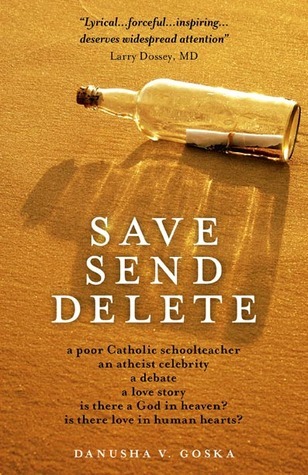What do you think?
Rate this book


299 pages, Paperback
First published April 16, 2012
I became excited when Moyers identified you as a skeptic who questions everything. I actually put down my fork and stopped chewing my pasta fazool. I question everything, and I find that makes me very lonely. If you want to talk about Islam and terror, for example, you know that the Politically Correct, self-identitied "Patiots" won't allow any critical statements about US petro-dependency. Abortion, euthanasia, gay marriage: people bring so many agendas to these matters that real, probing questions are never asked or answered. But you were as dogmatic in your atheism as a Monty Python parody of a pope.One night after watching a celebrity atheist on a talk show, devout Catholic Mira does the unthinkable. She sends him a long, forceful, clever email that she knows will never get past his secretary. Except that he answers. And he won't let her off the hook with a polite apology.
Monday 1:20 a.m.I cannot possibly do this book justice. But, of course, you know that's not going to stop me from trying.
Rand! Good grief, I see that you've written back already. I can't read that right now.
I was drifting off to sleep and I remembered. In my first e-mail to you I called you a "git" and a "wanker." And here I am chastising you for stereotyping me.
But that was so long ago Rand, and we are different people now, and we're doing something different here, aren't we? And it hurts when you refuse to see me.
SAVE send delete
Monday 1:34 a.m.
save SEND delete
Even if I were gifted with the kind of mind that could follow the painstaking, philosophical steps Thomas took to justify belief in God, I would not believe in God because of Thomas' steps. ... I'm of the lower orders. I believe in God for the same reason I believe in anything: its impact on my flesh.What you'll find within is neither world's most orthodox presentation of Catholic doctrine nor a gleeful and definitive beat-down of atheism, something I was afraid a "Catholic nobody emails famous atheist celebrity" semi-autobiographic novel might attempt to be. Rather, through Mira's half of a three-year e-mail correspondence, what you'll discover is an gracious, intimate, and honest look at one woman's incredible journey of life and belief. Mira (like, I suspect, her real-world counterpart Ms. Goska) understands what it means to live in the tension of the best and worst humanity can offer - without losing faith.